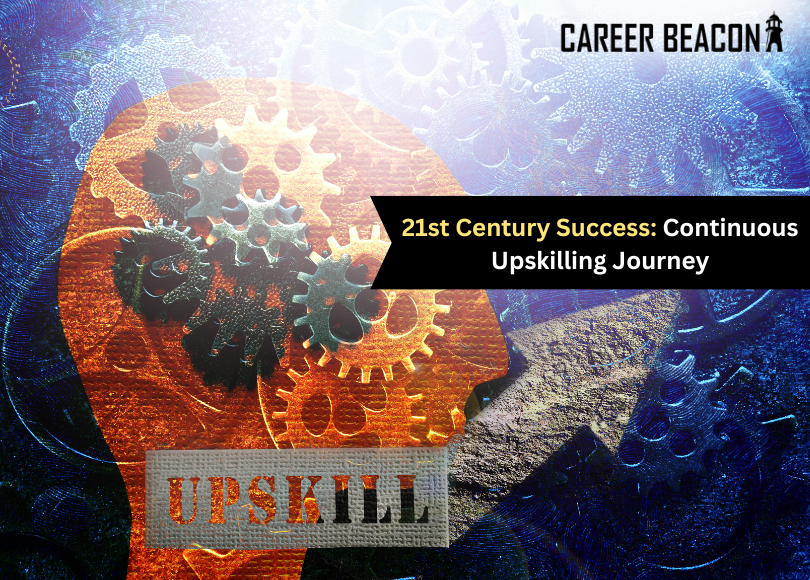
21st Century Success: Continuous Upskilling Journey
Thriving in the ever-evolving 21st-century job landscape necessitates a proactive embrace of upskilling—the process of acquiring new skills or enhancing existing ones to align with the dynamic demands of the job market. This transformative approach not only boosts productivity but also cultivates resilience and adaptability, rendering individuals more employable and adept at navigating professional challenges.
The imperative for upskilling spans across diverse sectors, as professionals, including software developers, healthcare practitioners, and marketing experts, grapple with the need to stay abreast of technological advancements and industry trends. To remain competitive and enhance productivity, students must adopt effective study habits and a growth mindset.
Critical Elements to Upskilling
Cultivating a Growth Mindset: The belief in personal development through dedication and hard work fosters a desire to learn and improve.
Setting Clear Goals: Effective study habits commence with establishing achievable goals, breaking them into smaller milestones to ensure steady progress.
Embracing Lifelong Learning: Upskilling is an ongoing process, necessitating active pursuit of learning opportunities beyond traditional education.
Leveraging Technology: Technology provides resources like online courses, educational apps, and e-learning platforms, offering convenient avenues for acquiring new skills.
Building Effective Study Habits for Upskilling
Time Management: Prioritizing tasks and creating a study schedule prevents procrastination and ensures a balanced approach to upskilling.
Active Learning: Engagement with study materials through note-taking, questioning, and participation fosters better retention and understanding.
Continuous Review: Regularly revising previously learned materials enhances memory retention and strengthens long-term understanding.
Self-Assessment: Regular evaluation of progress enables self-awareness and targeted skill development.
Challenges and Barriers to Upskilling
Limited Access to Educational Resources: Disparities in access to educational resources, especially among economically disadvantaged or remote students, may impede upskilling.
Time Constraints: Balancing academic, work, and personal commitments can pose challenges in allocating sufficient time for upskilling.
Financial Constraints: Some upskilling opportunities may incur costs, presenting financial barriers for students seeking self-development.
Overcoming Challenges and Nurturing Upskilling
Online Learning Platforms: Accessible and affordable online learning platforms democratize education, offering a wide array of courses.
Time Management and Prioritization: Effective time management strategies, such as breaking tasks into manageable segments, aids in balancing studies and personal growth.
Scholarships and Grants: Exploring financial aid options, including scholarships and grants, helps alleviate financial constraints and facilitates access to quality upskilling resources.
Despite challenges, upskilling is pivotal for students seeking increased productivity and professional success in today’s dynamic world. Cultivating a growth mindset, setting clear goals, embracing lifelong learning, and building effective study habits empower students to enhance their skill set and stay relevant in a rapidly evolving job market. Overcoming challenges through online learning platforms, strategic time management, and seeking financial assistance ensures that the journey of lifelong learning and growth remains fulfilling and prosperous.


